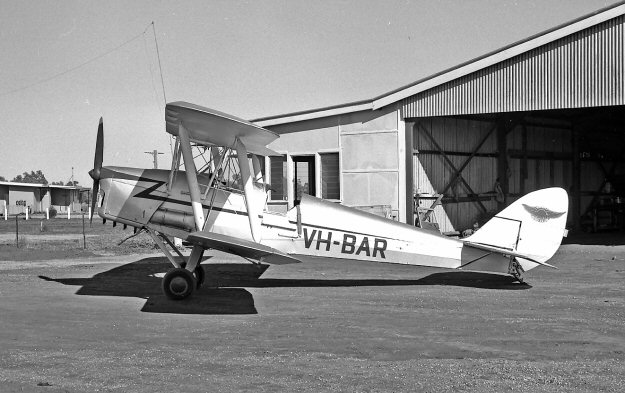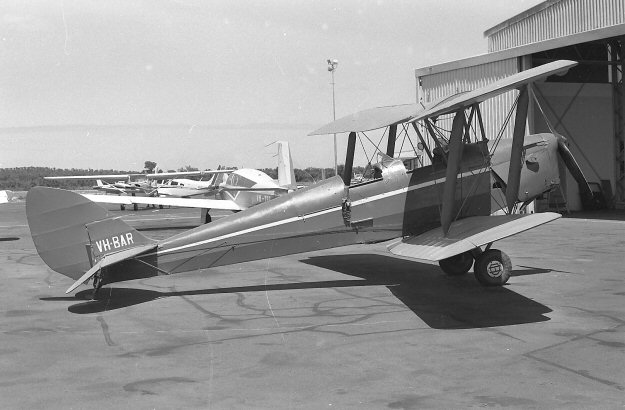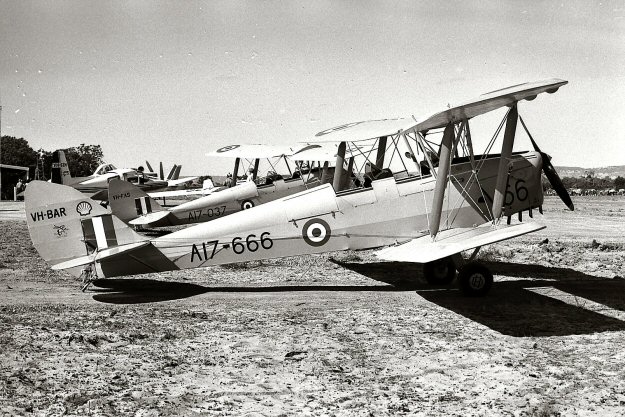VH-BAR de
Havilland D.H.82A Tiger Moth
(c/n DHA816/T342)

DHA816 was the second VH-BAR, the first having been
withdrawn from use in 1947 and then
restored to the RQAC as
VH-BJI. This one was not registered until July 1958, being
one of the
very last RAAF Tiger Moth
disposals. It went to the Walgett Aero Club, although at the time
the
manufacturer's
plate
was misread and the DHA rebuild number of "T342" was given as "1342"
to DCA, a
spurious c/n that the machine
carries to this day. The very nice shot of it above
was
taken at
Walgett by John Hopton. in 1961. Below is a photo by Geoff
Goodall of -BAR taken
at
Jandakot Airport, Perth in December 1974.
Decor at the time was red overall
with white cheat
line and rego.
By March 1979 it had succumbed
to the inexorable desire of owners
of any air-
craft
remotely associated with WW II into wearing "warbird" colors and was
repainted in training
yellow and
carrying its former RAAF identity of
A17-666. At the bottom of the page is a photo
of it so
adorned, also by Geoff, taken at Serpentine, WA in March 1979.
It is
still currently on
the register,
still in West Australia, and, at last
sighting, still in pseudo-RAAF livery. I
say pseudo,
since, to be
really authentic, the serial number needs to
be much closer to the roundel
(almost touch-
ing),
while the roundel itself should be larger. My
modeling notes also indicate
that most Tigers had
their "last
two" under the forward cockpit rather
than on the cowling,
although the latter may have
been acceptable
later on in the war.





